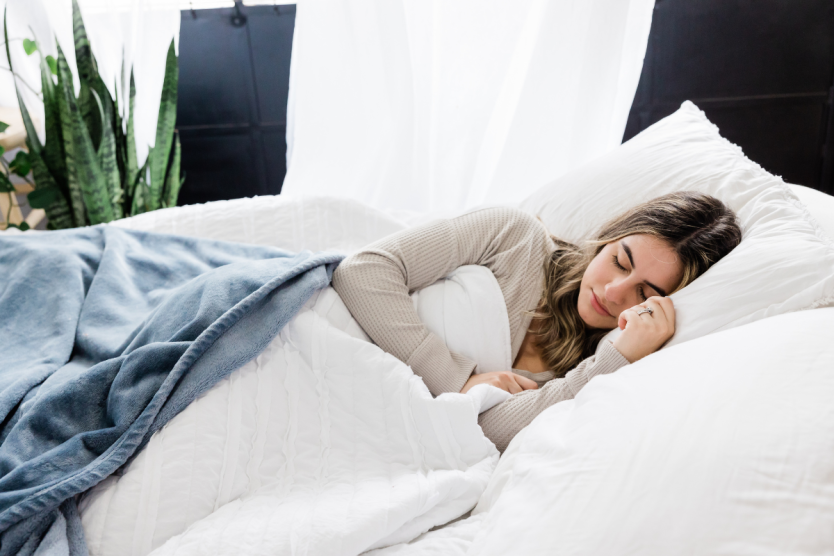There’s nothing more refreshing than a good night’s sleep.
But if you’re having trouble getting rest on a consistent basis, it’s worth taking steps to improve your sleep patterns. That’s because an ongoing sleep deficiency can contribute to a number of health issues, including heart disease, high blood pressure, diabetes, and stroke,1 and can affect mental health as well.
If you’re suffering from lack of sleep, you’re not alone. The Sleep Foundation reports that:2
- Between 30-48% of older adults may experience insomnia.
- Between 10-30% of adults struggle with chronic insomnia.
- Women have a lifetime risk of insomnia that is as much as 40% higher than that of men.
So let’s explore how to get better sleep.
Develop “Sleep Hygiene” Habits
By following some consistent routines around bedtime, also known as “sleep hygiene,” you may find your sleep improving. Don’t feel overwhelmed with the list. Consider implementing one at a time, and work your way up to these healthy sleep habits.
1. Practice Sleep Consistency
Experts recommend that you go to bed at the same time each night and get up at the same time each morning. That doesn’t mean just on workdays, either. Follow the routine on weekends too, so your body knows when it’s time to get to sleep, also known as reinforcing your body’s sleep-wake cycle.3
2. Build an Environment for Sleeping
It’s been said that the three things that disrupt sleep are noise, light and temperature. In that regard, create an environment in your bedroom that’s conducive to rest: a quiet, dark and cool place.3
Look for help in devices like room-darkening shades or eye masks to block light, and earplugs or a white noise machine to block sound. Lower the temperature in your house at night—most research supports sleeping in a cooler room that is around 65 degrees.4 Make your bedroom for sleeping only, by removing electronic devices, such as TVs, computers, and smartphones.5
3. Prepare Yourself for Sleep
A good sleep routine includes setting aside time before bed to relax. Calming activities like meditation, reading, writing in a journal or taking a bath might help you get to sleep.3 Avoid large meals, caffeine, and alcohol before bedtime, as they can disrupt your sleepiness, or impact the quality of your sleep.5
4. Practice Pro-Sleep Habits During the Day
There are a few habits you can try during the day to help you sleep better at night. One is to exercise, as being physically active during the day can help you fall asleep more easily at night.5 Spending time outside may help too, but avoid being active too close to bedtime.3
If you feel you need a nap, keep it short and avoid napping too late in the day. Unless you work nights, long daytime naps can interfere with sleep at night.3
Experts also suggest that if you’re having trouble sleeping, don’t lay and worry about it. If you’ve spent 20 minutes in bed without being able to fall asleep, get out of bed and do something relaxing in low light. Return to bed when you feel sleepy, and continue to stick to your sleep schedule.4
See a Doctor
The occasional sleepless night happens to all of us. But if you’re finding you can’t sleep well on a regular basis, contact your healthcare provider, in case there are underlying causes preventing you from getting better sleep.3 Use our Physician Finder to see a doctor near you who can help with diagnosis and advice on sleep hygiene.
















